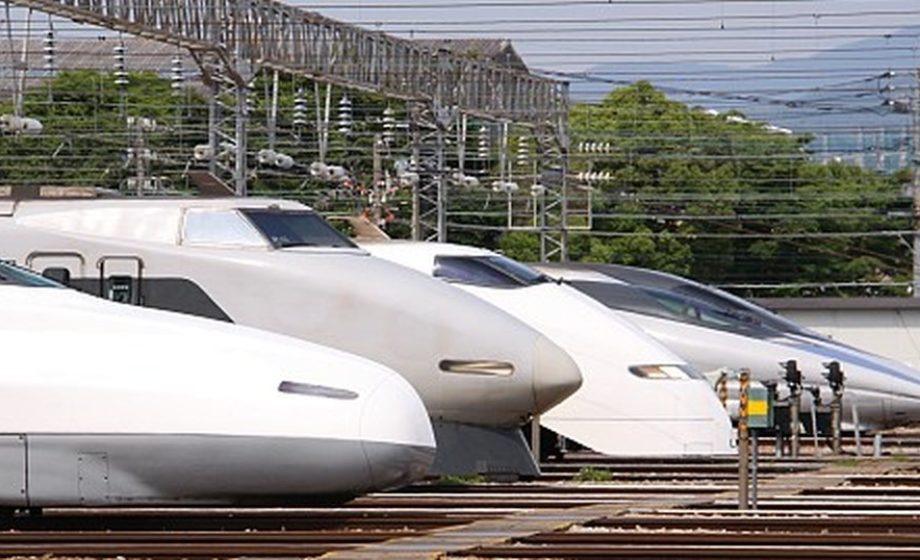I would posit that Japan is “the ultimate contrarian bet.” For entrepreneurs and investors in the West alike, the world’s third largest economy strikes me as being unfairly dismissed.
Don’t get me wrong. At the macro level, the Japanese economy faces its share of challenges. The demographic trend is not moving in the country’s favor, the population is aging, immigration is low, the deflationary environment is unrelenting, and people save more than they invest.
 European politicians cite Japan’s “lost decades” of economic growth as the risk of not supporting their own policies. This is disingenuous for two reasons: i) the lost decade myth has been debunked years ago by several respected economists (see graph), and ii) since 2008 many European economies rank below Japan on most economic metrics.
European politicians cite Japan’s “lost decades” of economic growth as the risk of not supporting their own policies. This is disingenuous for two reasons: i) the lost decade myth has been debunked years ago by several respected economists (see graph), and ii) since 2008 many European economies rank below Japan on most economic metrics.
So at the macro level, Japan’s economic catastrophe has been exaggerated (encouraged in part by the theory that Japanese politicians found that propagating their own sick man status alleviated pressure from Washington D.C.). Regardless, in the world of startups, it’s more about the micro than the macro. So what’s happening on the ground?
Having spent a fair amount of time in Japan over the past several months, here is my purely anecdotal take:
Traditionally socially taboo, entrepreneurship in Japan is becoming more acceptable. The young generation does not receive the same security of lifetime employment, so the perception of risk is lower. Moreover, in the tech sector, role models have emerged: young developers have scaled up multi-billion dollar companies in a short time: Line, Mixi, Gree, DeNA, etc. And established tech firms have created a culture of entrepreneurship from within: Yahoo!Japan, Recruit, Rakuten, etc. In fact, there’s even a compliment in some tech circles in Tokyo as being part of the “Recruit mafia.”
 Outsiders are shaking things up. Firms like Criteo, Supercell, and Evernote are proving that with perseverance and a genuine dedication to building relationships, the Japanese market can be hospitable. Foreigners are building startups in Japan: just last week I met up with three brilliant entrepreneurs: a French guy with an innovative solution for retail traffic analytics, an Australian who’s revolutionizing Japanese invoicing software, and a Finn who I have a feeling will transform Japan’s tech conference culture.
Outsiders are shaking things up. Firms like Criteo, Supercell, and Evernote are proving that with perseverance and a genuine dedication to building relationships, the Japanese market can be hospitable. Foreigners are building startups in Japan: just last week I met up with three brilliant entrepreneurs: a French guy with an innovative solution for retail traffic analytics, an Australian who’s revolutionizing Japanese invoicing software, and a Finn who I have a feeling will transform Japan’s tech conference culture.
The government seems to be doing a lot of the right things too. Rather than bogging down in a morass of convoluted research credits and subsidies with strings, Japan’s politicians are creating an environment that facilitates business creation. The national government continues its policy of quantitative easing, and in parallel nudges businesses to raise wages. Last week in Fukuoka, Mayor Soichiro Takashima downplayed his already impressive accomplishments of making his city a startup-friendly zone, focusing instead on his vision of how politicians and entrepreneurs need to collaborate more closely to foster innovation while ensuring it benefits all stakeholders.
Is the Japanese market difficult to enter for an outsider? Of course it is.
However, in contrast with say, the French market, which the world has perceived as “complicated” (one need look no further than the fresh DailyMotion and Loi Hamon quagmires to understand why), Japan is a market where patient, methodical progress actually does bear fruit over time. In contrast with say, the U.S., Japan’s labor culture is not one where you fear seeing your top developers be seduced on a monthly basis with 2~3x salary offers from ridiculously funded competitors (witness the uproar when Google started recruiting).
Some of the world’s most visionary tech companies see the potential of Japan. The aforementioned Criteo, Evernote, and Supercell get it. Home design platform Houzz sees it, announcing last week its opening of Japan as its sixth new market.
SlushAsia gets it. That’s why they chose Tokyo as the first international location outside Finland to hold arguably the world’s hottest tech conference globally.
Some visionary French entrepreneurs see it too
A handful of French startups see the potential too, such as the privileged group of the French Tech delegation invited to Fukuoka last week — QuantCube, Feeligo, TrustSeed, PopUpImmo, DynAdmic, Recipay, LaBelleAssiette — with the extraordinary chance to consult with Japanese tech leaders and politicians..
7 innovateurs de @LaFrenchTech débarquent sur le Japon pour pitcher à Fukuoka. Allez @PopUpImmo @Feeligo TrustSeed @VizaneGroup @Q3Techno !
— mark bivens (@markbivens) April 8, 2015
I know I preach this like a broken record, but European startups need to think globally. For some, perhaps that simply means becoming the pan-European leader in your domain. Others have the desperate ambition to prove themselves in Silicon Valley. I can admire such drive too, especially if it really makes logical business sense to prioritize the U.S. market. And then of course, there is the emerging markets strategy, whether it be Eastern Europe, Africa, India, Latin America, or Southeast Asia (the latter of which I submit has been seriously overlooked by European investors, to their loss).
However, if your product targets a mature market with high disposable income, a culture of technology adoption, and the most elevated consumer engagement and monetization metrics in the world, Japan is worth a close look. You would certainly have my attention.

